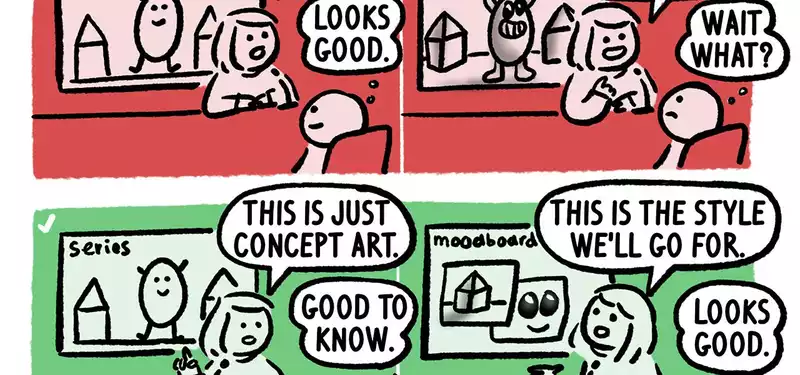Sep 7, 2018
How to Market an Animated Series: Part 2 (Be Clear)
In the first part of our multi-part series about tips for pitching and selling an animated series, we explored some of the fundamentals of setting up a pitch presentation.
With that foundation established, we can now layer on the next step, which is learning how to communicate ideas clearly. Oftentimes at pitching forums and markets, a creator has only 10 to 15 minutes to present their entire idea. The quality of the idea is important, but equally important is communicating that idea to the audience in as clear and concise a manner as possible.
As noted in the first part, please remember that pitching practices vary all over the world, so not every pitch tip will apply to every pitching situation. For example, in the United States, most animated series are not pitched at production forums in the presence of distributors and broadcasters. It is important to do your research beforehand and understand to whom you'll be pitching your project and in what format. Though these tips are based on experiences at European markets specifically, you will find that most of the tips will be applicable to other pitching situations as well.
Make your pitch as compact as possible. If you try to communicate too much at once, you'll end up communicating nothing at all.
When you have a lot to say about your project, pitching can easily become messy. Make sure that you stick to the program and are not all over the place.
If you pitch with several people, think about ways to divide the talking, like bouncing between each chapter.
Make your slides support what you say. Thoughtful design choices can help the audience absorb information more easily.
Mention it when something you show is not indicative of the final product, like the visual style. Then explain what it is going to be like.
Even if your visual materials are just temporary sketches, make sure they fit your target group.
The tone of your pitch should correctly reflect the tone of your project.
If you're pitching a dark/gloomy/serious project, then lead towards the happier/lovely/beautiful side of it. Otherwise it can scare off the audience, especially when you're doing a project for kids.
The way you describe your project sets expectations, so choose your words carefully. Be especially careful with generic, subjective words ('funny' for example). Rather, use very specific words.
Tell your audience how your story ends. Keeping the ending a secret is not cool – it's just inconvenient.
Keep mentioning the format, at every chance you get. People tend to forget easily.
Next week, we'll continue the series with a look at building trust in a pitch.




Post your comment